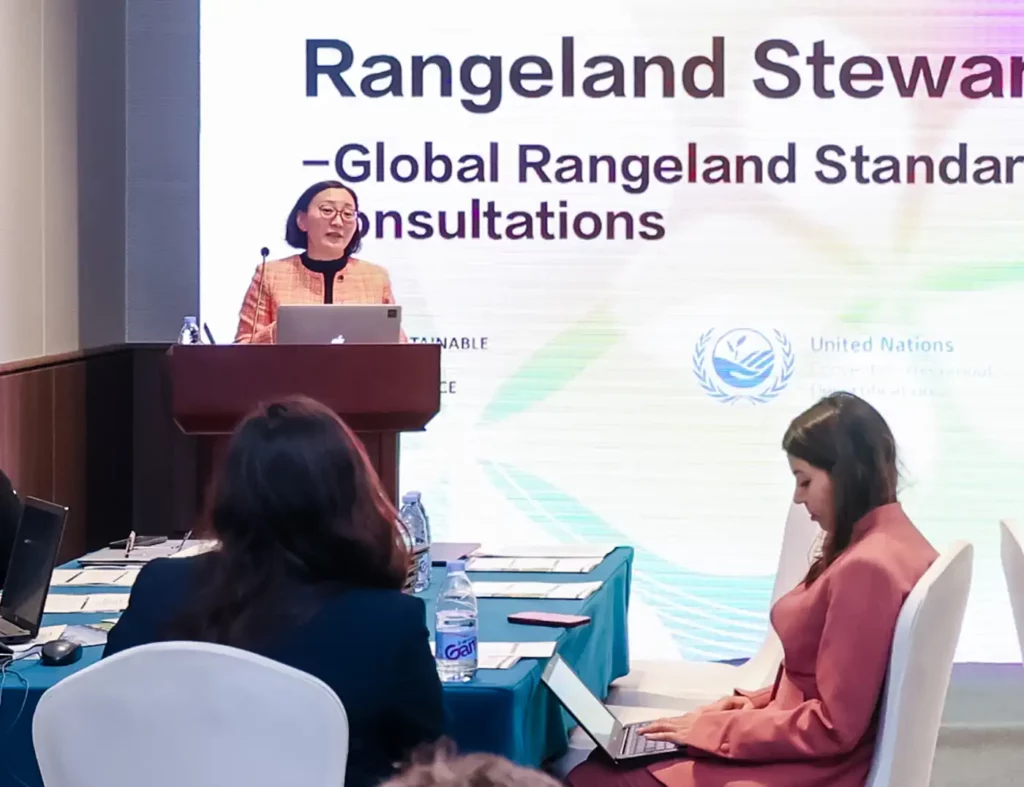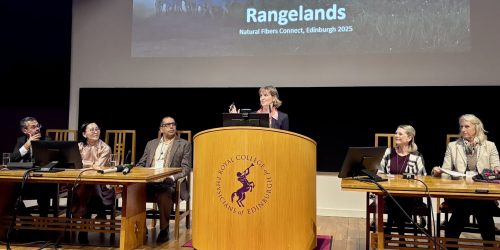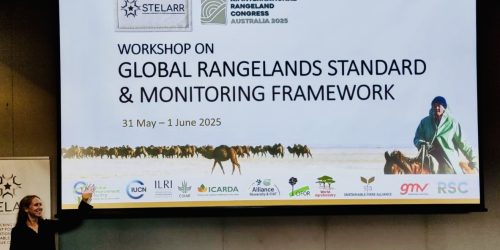The recent Rangeland Stewardship Council (RSC) session, held during the Sustainable Natural Fibre Conference in Beijing, highlighted the crucial efforts being made to promote sustainable rangeland management practices. This event, organised by the Sustainable Fibre Alliance (SFA) and the United Nations Convention to Combat Desertification (UNCCD), and supported by the GEF-funded STELARR project, served as a platform for discussing the RSC’s mission and exploring the challenges and opportunities in rangeland stewardship.
SFA CEO Una Jones opened the session by outlining the RSC’s goal to establish a Global Rangelands Standard that align with broader environmental and social objectives, such as land degradation neutrality, animal welfare, and sustainable value chains. The session featured an impressive lineup of expert speakers, including Sarah Toumi from UNCCD, Peter Hughes of Eurofins | BLC, Fiona Flintan from the International Livestock Research Institute (ILRI), and others, who shared valuable insights on diverse aspects of rangeland management.
A central theme in the discussions was the need for a holistic approach to rangeland stewardship—one that considers not only the environmental impacts but also the economic and social dimensions that affect local communities. The conversation highlighted the importance of integrating herding and indigenous communities into rangeland management practices, ensuring that their knowledge and livelihoods are respected and preserved.
Following the presentations, attendees participated in breakout discussions focused on developing global indicators for rangeland stewardship. These discussions underscored several challenges, including the varying regulations on pesticide use, the complexity of determining appropriate stocking rates in different environments, and the need for context-specific guidelines that address the unique conditions of each rangeland region.
The session concluded with a presentation by UNCCD’s Associate Programme Officer, Radhika Jain, who introduced the Business for Land (B4L) Strategy. Jain emphasised the need for international organisations and governmental bodies to act as facilitators for the private sector in achieving sustainability goals. This shift in perspective encourages collaboration and mutual support, fostering a more inclusive and effective approach to rangeland management.
For more information about future RSC events and how you can participate, please contact us at info@rangelandstewardship.org.





